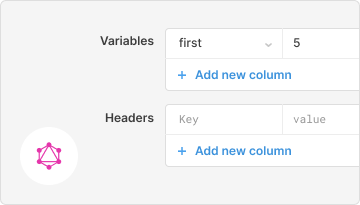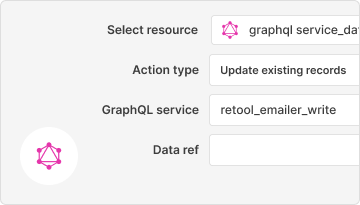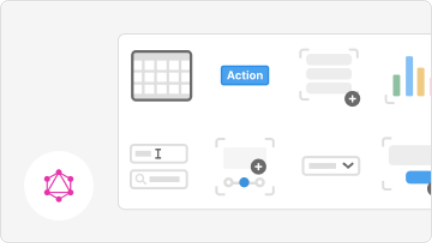Spurtcommerce on Microservices Architecture
Spurtcommerce adopts a microservices architecture, breaking down its eCommerce platform into independent, modular services. Features like customer management, product handling, order processing, and admin control operate separately, enhancing scalability, flexibility, and fault tolerance. This architecture enables Spurtcommerce to scale services on demand, optimizing resources and performance. Service isolation allows customization while ensuring failures in one module don’t affect the entire platform, maintaining stability.
Buy NowTools / Techniques
Node.js, Express.js, gRPC, RabbitMQ, JWT, Docker
Services
Customer, Order, Product, Admin, Lookup/Utility

Spurtcommerce Microservices List and their Functionalities
Spurtcommerce multi-vendor features are spread across five of the major microservices where, each service can operate independently and scale as needed, improving performance, flexibility, and maintainability for the platform.
Customer Service
The Customer Service microservice manages interactions with customers and vendors, ensuring smooth user experiences across the platform.
- Handles login, account creation, updates, and deletion for both customers and vendors.
- Manages items in the customer’s cart.
- Tracks and helps recover carts left without purchases.
- Enables real-time messaging between vendors and admin.

Product Service
The Product Service manages everything related to the products listed on the platform, ensuring the right attributes, availability, and customization options for buyers.
- Manages product listings & Manages stock levels and alerts for low inventory.
- Supports multiple product variants (size, color) and custom attributes (weight, dimensions).
- Allows customers to compare products.
- Lets customers save products for later.
- Enables multiple vendors to list the same product.
- Facilitates customer questions, answers, and product reviews.
- Manages discount codes for promotional use.
- Allows vendors to upload products in bulk via CSV.

Order Service
The Order Service manages the entire order lifecycle, from placing orders to processing payments and adjusting for returns.
- Processes customer orders and validates stock.
- Handles payments, vendor adjustments, and settlements.
- Tracks and updates the order’s progress.
- Applies valid discounts at checkout.

Lookup/Utility Service
The Lookup/Utility Service handles utility functions and manages essential platform configurations.
- Controls blogs, SEO settings, and pages.
- Manages settings like currency, tax, and regions.
- Configures site-wide filters and store preferences.
- Sends automated emails for order updates, marketing, and recovery.

Admin Service
The Admin Service manages platform administration, user roles, and access permissions to ensure a secure and controlled environment.
- Creates and manages users and roles.
- Sets specific access controls based on user roles.

Revolutionizing ECommerce B2B and B2C with Microservices Architecture
Buy NowDiscover how Spurtcommerce is transforming the eCommerce landscape with its innovative microservices architecture. In this video, we explore the key components—Product Service, Customer Service, Order Processing Service, User authentication—that make Spurtcommerce a powerful and scalable solution for online businesses. Learn about the advanced technologies like gRPC and RabbitMQ that ensure efficient communication and fault tolerance, driving performance even during peak traffic periods.
Whether you're running a B2B, B2C, or any other business model, Spurtcommerce's modular approach offers unparalleled flexibility, scalability, and resilience. Watch to see how you can enhance your eCommerce platform and stay competitive in a rapidly evolving market.
From startups to Fortune 500s, the world’s most effective teams use Retool to build custom business software. Our customers









Jalal
Co-Founder and CRO at JetFuel
I researched a lot of open source ecommerce products and lots of commercial ones. SpurtCommerce was the best value product and the best thing is you can always customize the code.

gRPC - For - Inter Services Communication
gRPC is a high-performance, open-source framework that enables efficient communication between services in a microservices architecture. In a Node.js microservices project like Spurtcommerce, gRPC facilitates fast and reliable communication between different services such as customer management, product handling, and order processing. By using Protocol Buffers (a language-neutral serialization format), gRPC allows for lightweight, binary data transmission, reducing bandwidth usage and improving speed. This ensures that Spurtcommerce’s microservices can interact seamlessly and efficiently, even under high traffic loads, enhancing overall system performance and scalability.

RabbitMQ - For - Event Driven communication
RabbitMQ, a powerful message broker that facilitates communication between microservices in a Spurtcommerce, Node.js-based architecture. In this setup, RabbitMQ enables asynchronous messaging, allowing different services—such as customer management, product handling, and order processing—to exchange information without needing to operate simultaneously. This decouples services, improving system efficiency and resilience. RabbitMQ ensures that tasks like notifications, order updates, and stock adjustments are processed reliably, even during high traffic. By handling message queues, RabbitMQ enhances scalability, fault tolerance, and the overall performance of the microservices ecosystem.

API Gateway
API Gateway is essential for managing communication between the web and mobile front ends and the backend microservices in a Node.js-based platform like Spurtcommerce. It serves as a single entry point, routing API calls from the front end, whether from web browsers or mobile apps, to the appropriate backend services such as customer management, product listings, order processing etc. By implementing a custom API Gateway, Spurtcommerce has full control over traffic, security, and request management, without depending on third-party tools. It helps manage authentication, balance loads, limit requests, and log activity, all while boosting performance, scalability, and security across the microservices.



 B2C , B2B Marketplace
B2C , B2B Marketplace
 Downloadable Products
Downloadable Products Subscription-based Marketplace
Subscription-based Marketplace Booking Services Marketplace
Booking Services Marketplace Social Commerce Marketplace
Social Commerce Marketplace Digital Products
Marketplace
Digital Products
Marketplace Content Marketplace
Content Marketplace

 Items are
added
Items are
added